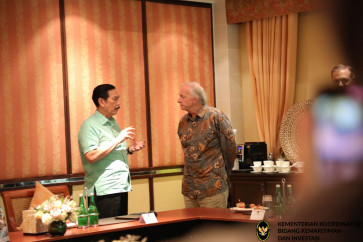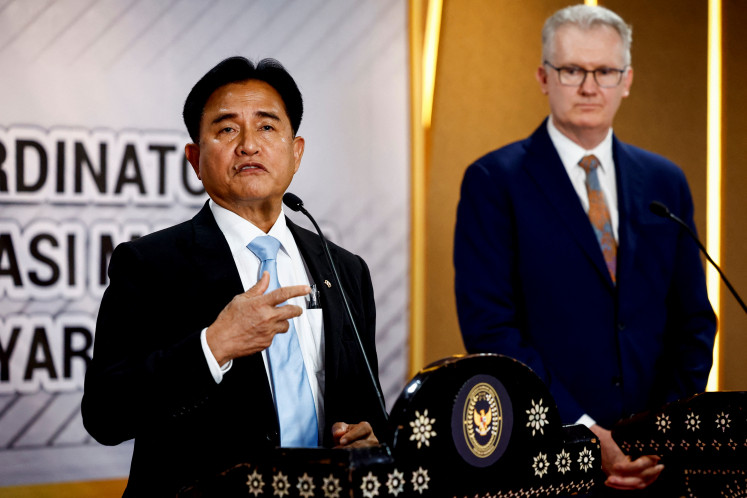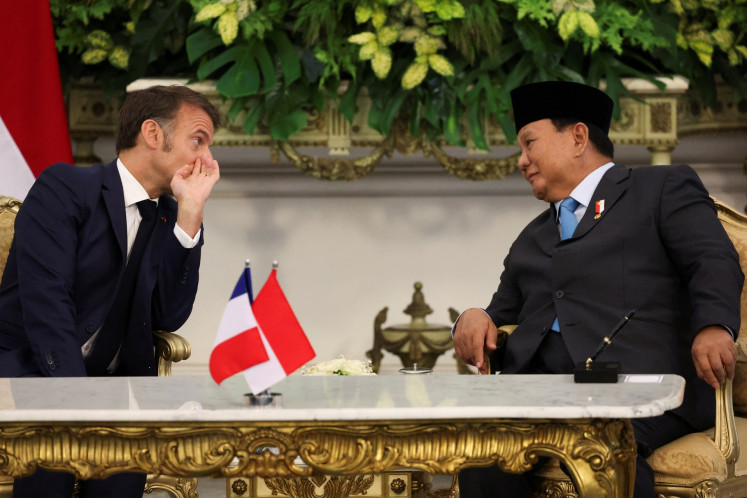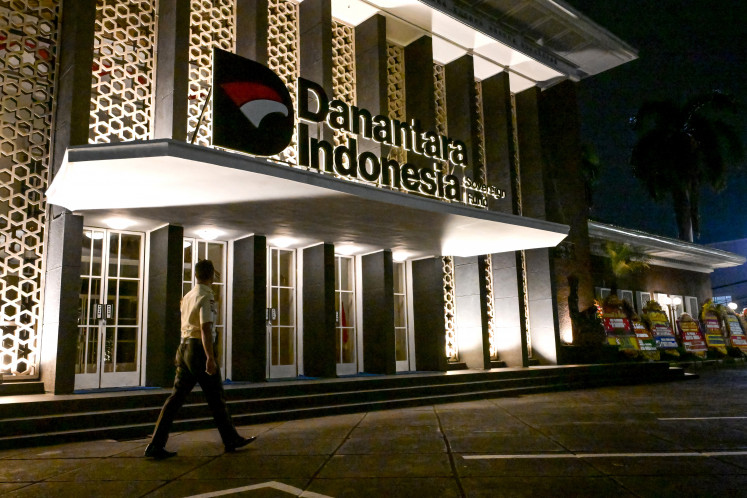Men spend more on personal care items: Nielsen
Men in large Indonesian cities have paid more attention to their appearance over the past year, pushing up total sales of male grooming products
Change text size
Gift Premium Articles
to Anyone

M
en in large Indonesian cities have paid more attention to their appearance over the past year, pushing up total sales of male grooming products.
A Nielsen survey revealed Tuesday that sales were up by 29.3 percent to Rp 1.24 trillion (US$ 144.5 million) in 2010 from Rp 957 billion.
Nielsen home panel services associate director Hellen Katherina said household spending averaged around Rp 57,000 per purchase of male grooming products in 2010, up 15 percent from Rp 49,000 in 2009.
“It indicates that the use of personal care products for men, such as shampoo, cleanser and even hand and body lotion, have become more popular,” she said in a press conference regarding a recent survey.
The survey involved 4,550 households in five Indonesian cities, including the largest population centers of Greater Jakarta, Bandung, Semarang, Surabaya and Medan.
Hellen said men gave first priority to their scent, which drove the penetration rate of male cologne products to grow by 41 percent in 2010, up from a 39 percent spike in 2009.
“Higher penetration rate means their dependence on the products is higher,” she said.
Other products in high priority are hairstyling accessories with penetration rate of 23 percent and skin care products at 15 percent.
Hellen added the trend had been confirmed by purchasing place and purchase behaviors.
She said men usually bought personal care products in modern trade channels, such as minimarkets and hyper markets.
“They also usually did it by themselves instead of depending on mothers or wives. This means that they began to pay more attention to their appearance and want to look cleaner and smell sweeter,” Hellen said.
The survey shows that 48 percent of its respondents bought male products in mini markets, while 33 percent in hyper markets.
According to Hellen, the trend is also shown by the frequency of purchase of products.
According to the data, men purchased male grooming items 4.7 times on average last year, down from 4.5 times in 2009.
“They bought bigger package sizes, meaning that they did not just try the products. They chose products with larger volume which could last longer and resulted in lower frequency of purchase. Using the products has become habit,” she said.
“Manufacturers needs to create innovations, such as offering products that address male-specific needs, to tap into the growing market,” she said.









